Sleep Protein combines 20g of slow-digesting milk protein with research-backed sleep ingredients in a melatonin-free formula that supports both overnight muscle repair and deep, restorative sleep.
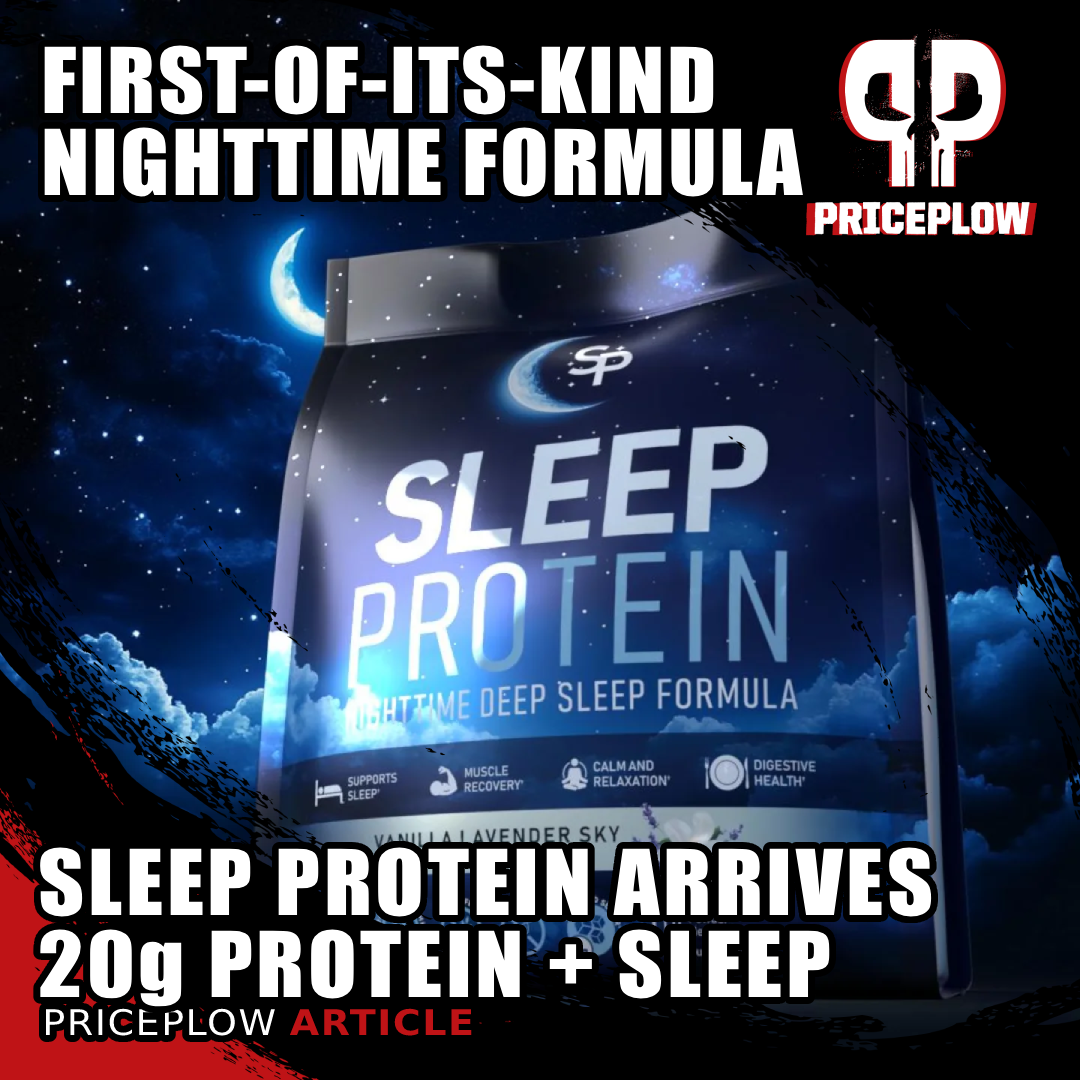
Sleep Protein delivers melatonin-free nighttime recovery! Marc Boudreau's formula pairs 20g slow-digesting milk protein with research-backed sleep ingredients like tryptophan, 5-HTP, GABA & L-theanine. Support overnight muscle repair AND quality sleep.
The supplement industry just got a new innovative nighttime product, and this is one we can all get behind. Sleep Protein, launching today on Amazon, delivers a dual-function formula that tackles two critical aspects of recovery: quality sleep and overnight muscle repair.
This isn't just another protein powder or sleep aid, it's a complete nighttime nutrition system designed for athletes, fitness enthusiasts, and anyone seeking better sleep without morning grogginess.
A Passion Project Turned Into an Innovative Sleep Supplement
Behind Sleep Protein is Marc Boudreau, a supplement industry veteran with over 12 years of experience at major brands including ALLMAX Nutrition, PERFECT Sports, and Iovate Health Sciences. After helping build global eCommerce operations generating millions in sales, Boudreau left the corporate world to create something personal: a solution to his own sleep struggles during the demanding supplement industry grind.
"I've put everything I have into Sleep Protein," Boudreau shared on LinkedIn. "Maxed out my time. Drained my savings. Walked away from comfort. Bet on this with nothing but belief and stubbornness holding it all together."
The result is a first-of-its-kind nighttime recovery shake that combines 20g of slow-digesting milk protein isolate with research-backed sleep ingredients... all without melatonin.
Sign up for Sleep Protein news and deal alerts, then let's get into what makes this so special:
Sleep Protein Sleep Protein – Deals and Price Drop Alerts
Get Price Alerts
No spam, no scams.
Disclosure: PricePlow relies on pricing from stores with which we have a business relationship. We work hard to keep pricing current, but you may find a better offer.
Posts are sponsored in part by the retailers and/or brands listed on this page.
This area is reserved for Team PricePlow's upcoming videos.
Subscribe to our channel and sign up for notifications so you catch it when it goes live!
Sleep Protein Ingredients
Sleep Protein delivers a comprehensive nighttime formula in each 32g scoop, providing 100 calories and 20g of protein alongside carefully selected sleep-supporting nutrients. The formula targets three key phases: falling asleep faster, staying asleep longer, and supporting overnight muscle recovery.
Each serving provides the following:
-
Milk Protein Isolate - 20g
The foundation of Sleep Protein's dual-action formula, milk protein isolate provides a unique 80% casein and 20% whey protein blend that delivers sustained amino acid release throughout the night. Unlike standard whey protein that absorbs quickly, this slow-digesting protein matrix supports muscle protein synthesis for up to 7 hours.[1]
Why casein dominates the nighttime advantage
Casein proteins aggregate into curds when they hit the acidic environment of your stomach, fundamentally changing how your body processes them. This coagulation creates a gel-like structure that delays the delivery of amino acids to your intestines, resulting in a sustained but prolonged release of nutrients into your bloodstream.[2] While whey protein creates a rapid spike in blood amino acids within the first hour, casein's slower digestion pattern means amino acids continue entering circulation for several hours, making it ideal for the extended overnight recovery period.
More than just sustained protein delivery: It has its own Tryptophan!
What makes this protein blend valuable for sleep goes beyond its digestion kinetics. The milk protein isolate in Sleep Protein provides an additional 500mg of L-tryptophan beyond the standalone 220mg dose, creating a total tryptophan delivery system designed for both immediate and sustained sleep support. This naturally occurring tryptophan works synergistically with the formula's other sleep ingredients to support your body's natural melatonin production pathways.
The 80:20 casein-to-whey ratio mirrors the natural composition found in cow's milk, providing the best of both worlds: immediate amino acid availability from the whey fraction to kickstart muscle protein synthesis, combined with the prolonged casein release that continues feeding your muscles while you sleep. This makes milk protein isolate an ideal choice for anyone looking to maximize overnight recovery without the need for multiple protein doses throughout the night.
-
L-Tryptophan - 220mg
L-Tryptophan is an essential amino acid that serves as the foundation of your body's natural sleep architecture. As a direct precursor to both serotonin and melatonin, this 220mg dose provides the raw material your brain needs to initiate the cascade of neurochemical events that lead to quality sleep.[3]
What makes Sleep Protein's approach so intelligent is the dual-delivery system. While this standalone 220mg provides fast-absorbing tryptophan for sleep onset, the additional 500mg naturally present in the milk protein isolate creates a sustained-release pattern that helps maintain sleep throughout the night. This mirrors your body's natural preference for steady amino acid availability rather than large bolus doses.
Research consistently demonstrates tryptophan's ability to reduce sleep latency (the time it takes to fall asleep) while improving overall sleep quality.[4] Unlike pharmaceutical sleep aids that can create dependency or morning grogginess, tryptophan works with your body's existing pathways to promote natural, restorative sleep.
The 720mg total tryptophan load (220mg + 500mg from milk protein) positions this formula in the clinically effective range while avoiding the excessive doses that can sometimes cause digestive upset in sensitive individuals.
But there's even more coming that's related to this:
-
5-HTP - 200mg
5-Hydroxytryptophan (5-HTP) serves as the crucial intermediate step between L-tryptophan and serotonin, working synergistically with the tryptophan already present in Sleep Protein's formula. This 200mg dose provides a direct pathway to enhanced serotonin production, supporting both mood regulation and sleep quality.[5]
In Sleep Protein's context, 5-HTP is useful in its ability to cross the blood-brain barrier more efficiently than tryptophan alone. While your body must convert tryptophan through multiple enzymatic steps to reach serotonin, 5-HTP bypasses the rate-limiting tryptophan hydroxylase step, providing a more direct route to neurotransmitter synthesis.
Research demonstrates that 5-HTP supplementation can improve sleep quality by increasing REM sleep and reducing the time needed to fall asleep.[6] The inclusion of both L-tryptophan and 5-HTP creates a comprehensive dual-pathway approach -- the tryptophan provides sustained raw materials throughout the night, while 5-HTP offers more immediate serotonin support for sleep onset.
This 200mg dose falls within the clinically studied range while avoiding potential gastrointestinal side effects that can occur with higher doses, making it an ideal complement to Sleep Protein's nighttime recovery system.
-
GABA - 500mg
Gamma-Aminobutyric Acid (GABA) is the brain's primary inhibitory neurotransmitter, essentially acting as the body's natural "brake pedal" for neural activity. This substantial 500mg dose helps quiet an overactive mind and ease the transition from the day's stress into restorative sleep.
GABA works by binding to GABA receptors in the brain, which opens chloride channels and reduces neuronal excitability.[7] This neurochemical "downregulation" is exactly what your brain needs to shift from the heightened alertness of daily activities into the calm, relaxed state conducive to quality sleep.
Research demonstrates that GABA supplementation can also significantly reduce sleep latency while also increasing total non-REM sleep time. One interesting study showed that a GABA and L-theanine combination (both present in Sleep Protein) decreased sleep latency by 20.7% and increased sleep duration by 87.3% compared to individual ingredients alone.[7]
The 500mg dose in Sleep Protein is designed to provide meaningful relaxation benefits without morning grogginess, supporting your body's natural ability to unwind and transition into deep, restorative sleep.
-
L-Theanine – 250mg
L-Theanine, the calming amino acid found naturally in green tea, provides relaxation without sedation at this 250mg dose. L-theanine has the unique ability to promote alpha brain wave activity, which is the same brainwave pattern associated with relaxed alertness and meditation.[8] This creates an ideal mental state for transitioning into sleep: calm and relaxed, but not groggy or artificially sedated.
Research demonstrates that L-theanine works through multiple pathways to support sleep onset. It acts as a mild antagonist at glutamate receptors while potentially increasing GABA levels in the brain, helping to quiet the excitatory neural activity that can keep minds racing at bedtime.[9] The amino acid also supports healthy neurotransmitter balance by promoting dopamine and serotonin activity in key brain regions.
Most importantly for Sleep Protein's formula, L-theanine demonstrates remarkable synergy with GABA. The groundbreaking study by Kim et al. found that GABA and L-theanine combinations significantly decreased sleep latency (time to fall asleep) and improved NREM sleep quality compared to either compound alone.[7] This synergistic effect is what makes the pairing of 250mg L-theanine with 500mg GABA so compelling for natural sleep support.
The 250mg dose falls within the clinically studied range for sleep benefits while avoiding the potential diminishing returns seen at very high doses above 400mg daily.
-
Magnesium (as Magnesium Bisglycinate Chelate) - 250mg (60% DV)
Magnesium Bisglycinate provides 250mg of highly bioavailable magnesium, a mineral essential for muscle relaxation and nervous system function. The bisglycinate form is chelated to glycine, an amino acid that supports sleep, creating a dual-action relaxation compound.
This chelated form represents one of the most absorbable magnesium supplements available. Research demonstrates that magnesium bisglycinate has superior bioavailability compared to forms like magnesium oxide, with enhanced absorption facilitated by the glycine amino acids that protect the magnesium from binding to other substances that could inhibit uptake.[10]
ZMA-Like Sleep and Recovery Benefits
The combination of magnesium, zinc (25mg), and vitamin B6 (100mg) in Sleep Protein creates a ZMA-like profile that targets multiple pathways involved in sleep and recovery. This mineral trio works synergistically to support muscle relaxation, nervous system function, and the biochemical processes that promote restorative sleep.
Magnesium deficiency is remarkably common and often manifests as difficulty falling asleep and staying asleep. Clinical research shows that magnesium supplementation can improve sleep quality indicators and reduce inflammation markers in adults with poor sleep quality.[11]
Additional Glycine Benefits!
The bisglycinate chelation provides approximately 2250mg of glycine per serving - a substantial bonus that extends well beyond simple mineral transport. Glycine functions as an inhibitory neurotransmitter in the central nervous system, helping to quiet neural activity and promote the calm mental state necessary for quality sleep. This additional glycine works alongside the standalone 220mg L-tryptophan dose to create multiple pathways supporting natural sleep onset and maintenance.
The 250mg dose provides 60% of the daily value in the most absorbable form available, making it an ideal component of this comprehensive nighttime recovery formula.
-
Zinc (as Zinc Citrate) - 25mg
Zinc citrate provides 25mg of elemental zinc (227% DV), delivering this essential mineral in a highly bioavailable form that supports multiple pathways critical for sleep and recovery. While zinc's immune-supporting properties are well-known, its role in sleep regulation and overnight recovery makes it a valuable addition to this nighttime formula.
Zinc plays a crucial role in neurotransmitter regulation and supports the conversion pathways that transform tryptophan into serotonin and eventually melatonin. The mineral also supports protein synthesis and muscle recovery processes that occur during deep sleep phases, making it additionally valuable for athletes and active individuals.
The 25mg dose positions Sleep Protein's zinc content in the clinically effective range while avoiding excessive amounts that could interfere with copper absorption. Combined with the formula's magnesium and vitamin B6, this creates a synergistic mineral complex reminiscent of ZMA formulas that have long been valued for their sleep and recovery benefits.
Zinc citrate's superior bioavailability compared to zinc oxide ensures optimal absorption, especially when taken with the protein and other nutrients in this nighttime formula. This mineral foundation supports both the immediate sleep-promoting effects and the overnight anabolic processes that define quality recovery.
-
Calcium - 580mg (from the Milk Protein Isolate)
Calcium naturally occurs in the milk protein isolate, providing 580mg (44% DV) per serving. Calcium supports muscle function and works synergistically with magnesium for optimal muscle relaxation and nervous system function.
Additional Support Ingredients
Sleep Protein includes several supporting ingredients to enhance the formula's effectiveness:
- Inulin (2000mg): A prebiotic fiber that supports digestive health while enhancing the formula's absorption profile. This 2000mg dose feeds beneficial gut bacteria, promoting a healthy microbiome that's crucial for overall wellness and recovery.[12] Beyond digestive benefits, inulin helps slow nutrient absorption, creating a more sustained release of the protein and sleep-supporting compounds throughout the night. This timing mechanism supports the formula's goal of providing extended amino acid availability for muscle recovery while you sleep.
- Enzyme Blend (200mg): This ensures you get maximum benefit from Sleep Protein's 20g milk protein isolate and supporting nutrients. This comprehensive digestive enzyme complex contains amylase for carbohydrate digestion, protease for protein breakdown, lipase for fat digestion, cellulase for fiber processing, and lactase for lactose digestion.
Research demonstrates that digestive enzyme supplementation significantly increases protein absorption rates, with studies showing enhanced amino acid bioavailability when proteases are combined with protein sources.[13] This is especially valuable for nighttime protein consumption, where optimal digestion supports sustained amino acid release throughout your sleep cycle.
For those with lactose sensitivity, the included lactase ensures comfortable digestion of the milk protein base without digestive discomfort that could disrupt sleep quality.
- Vitamin B6 as Pyridoxine HCl (100mg): Vitamin B6 plays a crucial role in neurotransmitter synthesis, supporting the conversion of tryptophan to serotonin and eventually melatonin -- making it an essential cofactor for the sleep-supporting pathways activated by Sleep Protein's other ingredients.[14] This substantial 100mg dose (5,882% DV) ensures optimal cofactor availability during the metabolic processes that promote natural sleep onset and maintenance.
Beyond sleep support, B6 works synergistically with the formula's magnesium and zinc to create a "ZMA-style" mineral complex that supports muscle recovery and protein synthesis during overnight rest. The high dose accounts for the increased metabolic demand placed on B6-dependent pathways by the substantial tryptophan and 5-HTP content, ensuring these sleep precursors can be efficiently converted into their active forms.[15]
- Micellar Casein (12mg): Additional slow-release protein to extend the amino acid delivery window. See note added below.
Flavors Available
Sleep Protein launches exclusively in Vanilla Lavender Sky, a carefully crafted flavor profile designed to enhance the nighttime experience. The vanilla base provides familiar comfort while subtle lavender notes reinforce the calming, spa-like atmosphere perfect for bedtime rituals.
The Story on the Added Casein Protein - There's ~16g Total!
If you look closely at the label, you'll see something interesting: 12mg of added casein!
Although Milk Protein Isolate is the primary ingredient in Sleep Protein (providing 20g of protein per serving, ~80% of which is naturally casein), Boudreau also listed casein as a callout for anyone searching for casein in a pre-bedtime protein. The actual casein content is approximately 16g per serving.
This helps signal to consumers and search engines that casein is present, especially for those specifically searching for it. After all, not everyone realizes that milk protein is mostly casein inside, but that's why it's so thick and rich!
Conclusion: Sleep and Recovery Innovation
Sleep Protein addresses a genuine gap in the supplement market by combining two essential aspects of recovery in one convenient nighttime formula. Marc Boudreau's industry expertise and personal commitment to solving real sleep challenges has resulted in a thoughtfully formulated product that goes beyond traditional categories.
The melatonin-free approach sets Sleep Protein apart from conventional sleep aids, relying instead on natural precursors and supporting nutrients that work with the body's existing pathways. For athletes, fitness enthusiasts, and anyone struggling with both sleep quality and recovery, this dual-function formula offers a comprehensive solution.
Sleep Protein positions itself as a premium nighttime recovery product on Amazon that combines the benefits of a high-quality protein supplement with research-backed sleep support.
For an industry veteran who "put everything" into this formula (in all senses of the word), Sleep Protein launches as both a personal passion project and a potentially category-defining product. As Boudreau puts it: "Sweet dreams, rebels."
Sleep Protein Sleep Protein – Deals and Price Drop Alerts
Get Price Alerts
No spam, no scams.
Disclosure: PricePlow relies on pricing from stores with which we have a business relationship. We work hard to keep pricing current, but you may find a better offer.
Posts are sponsored in part by the retailers and/or brands listed on this page.
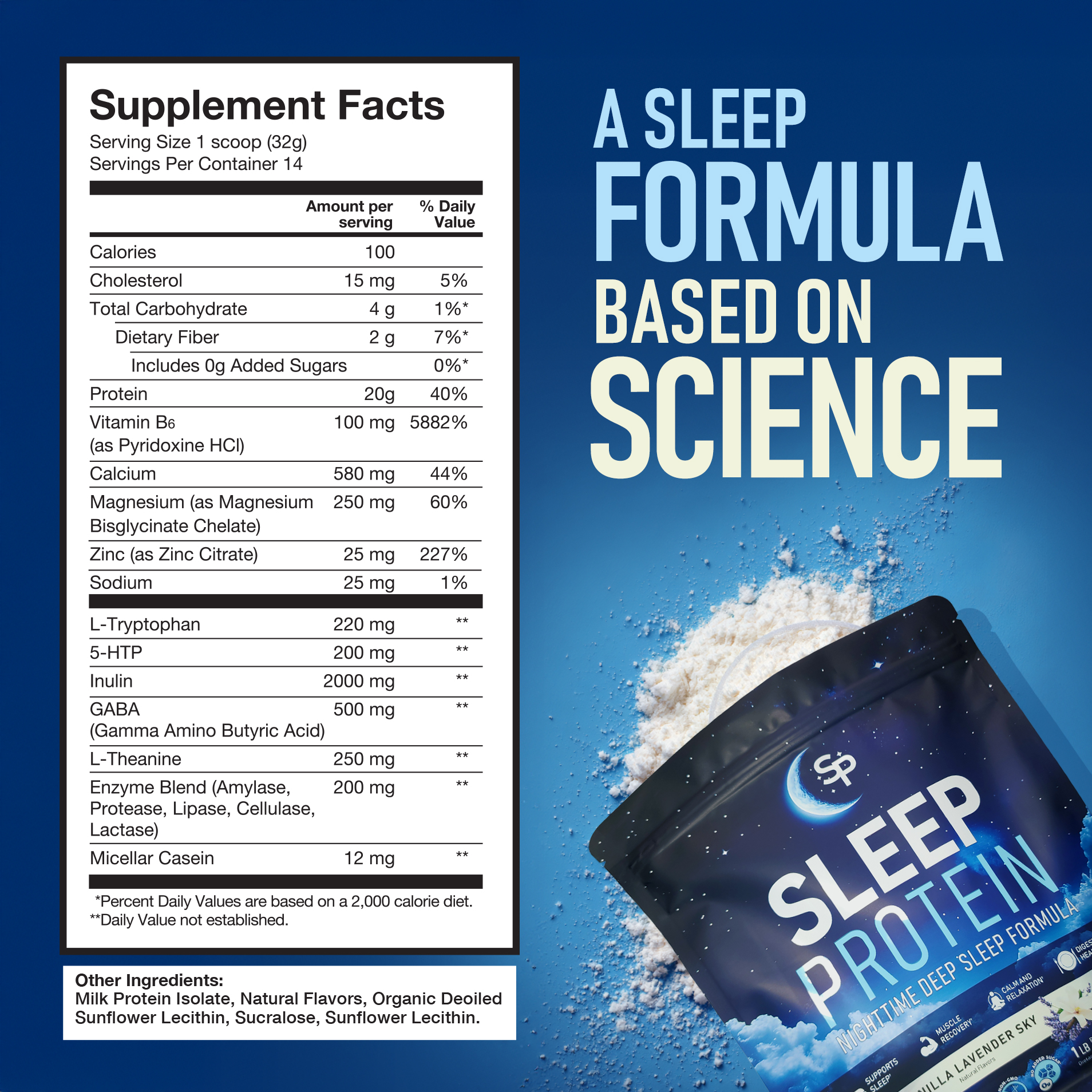
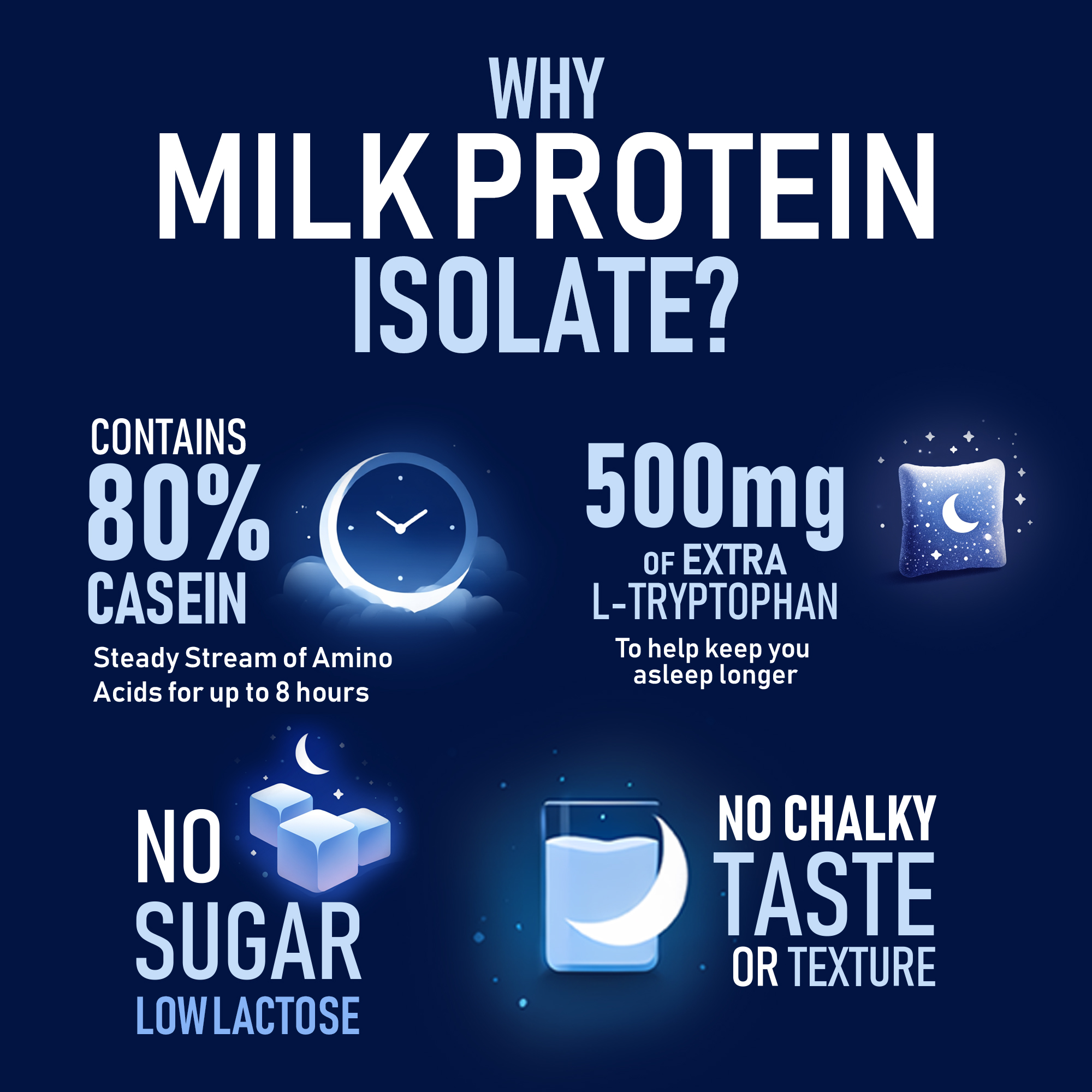
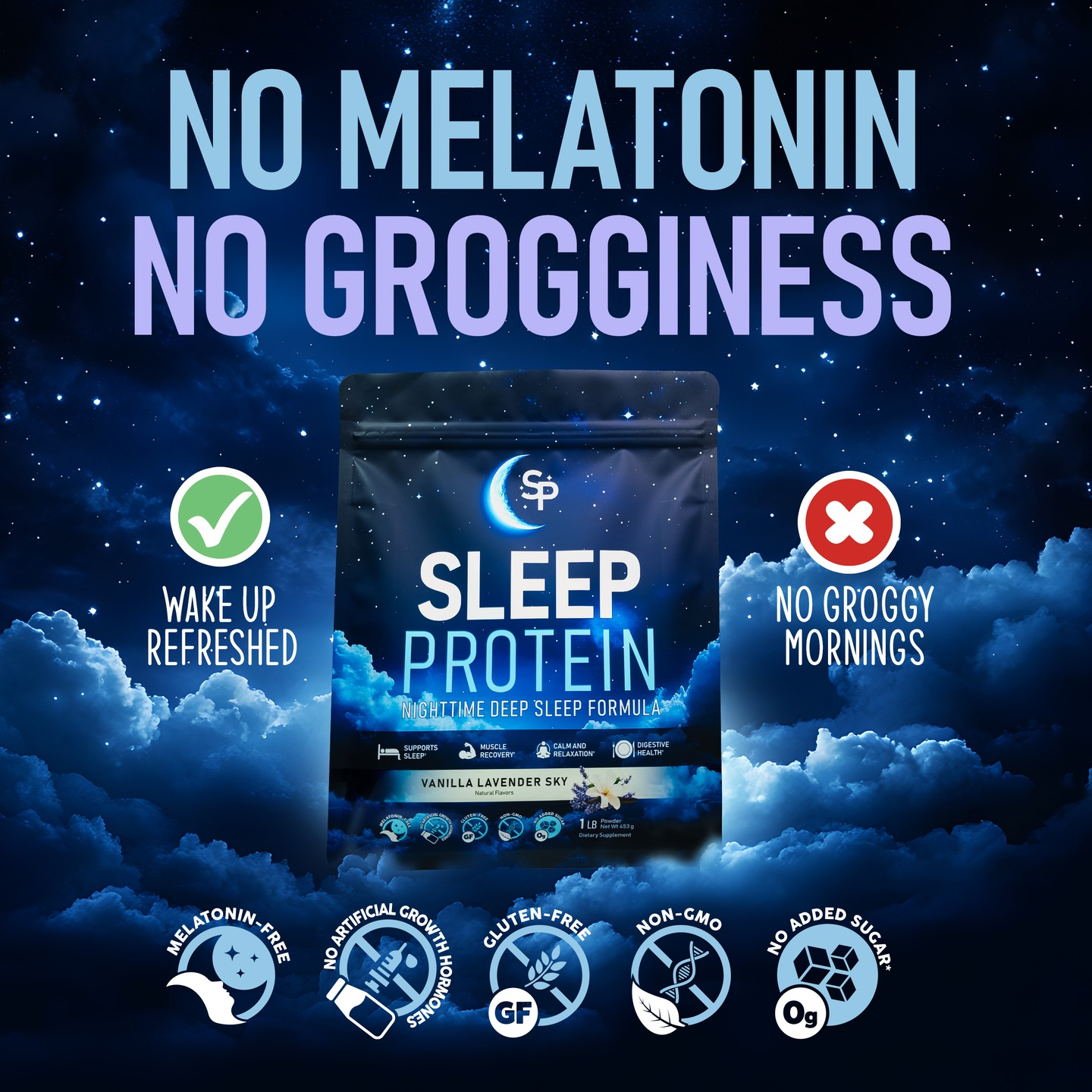
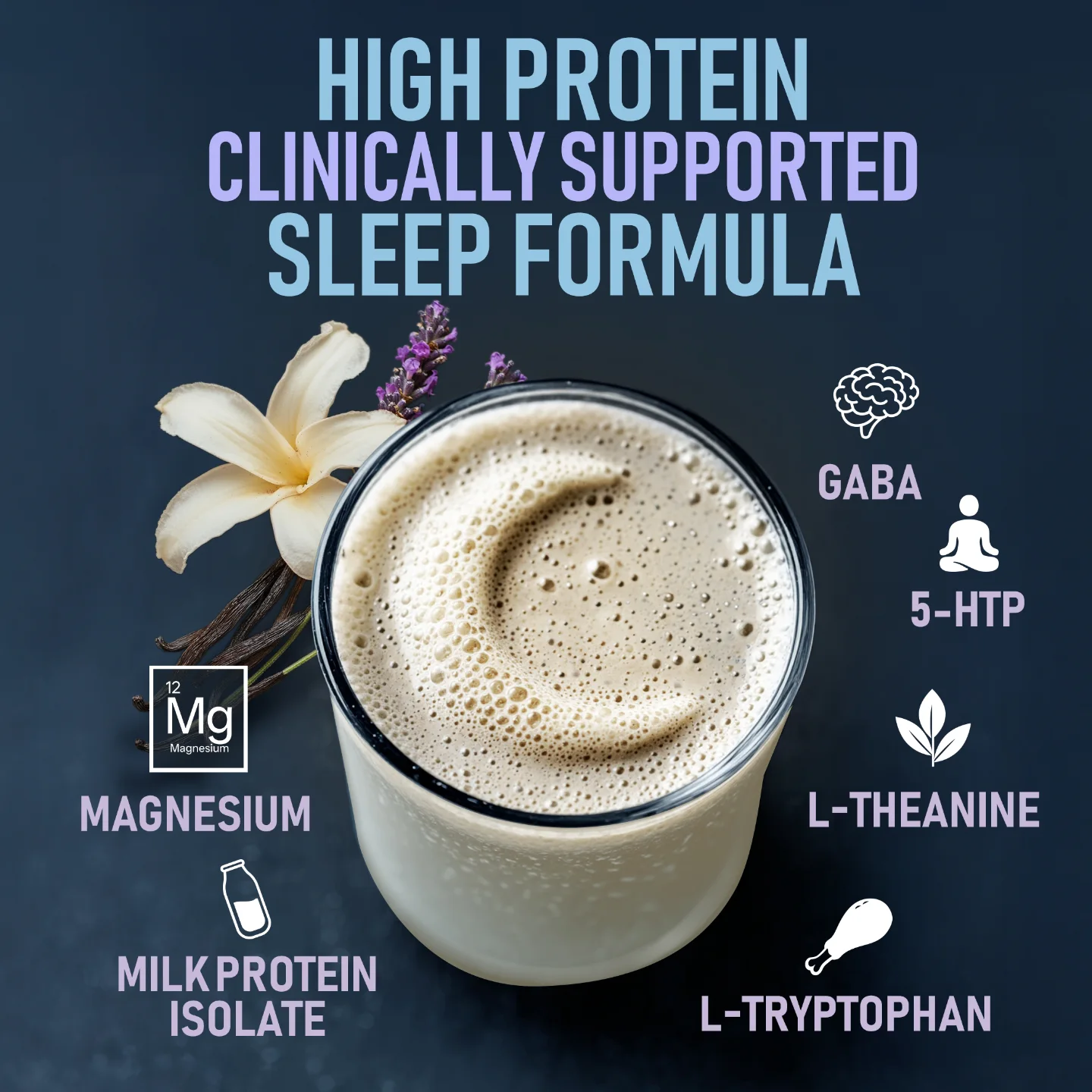
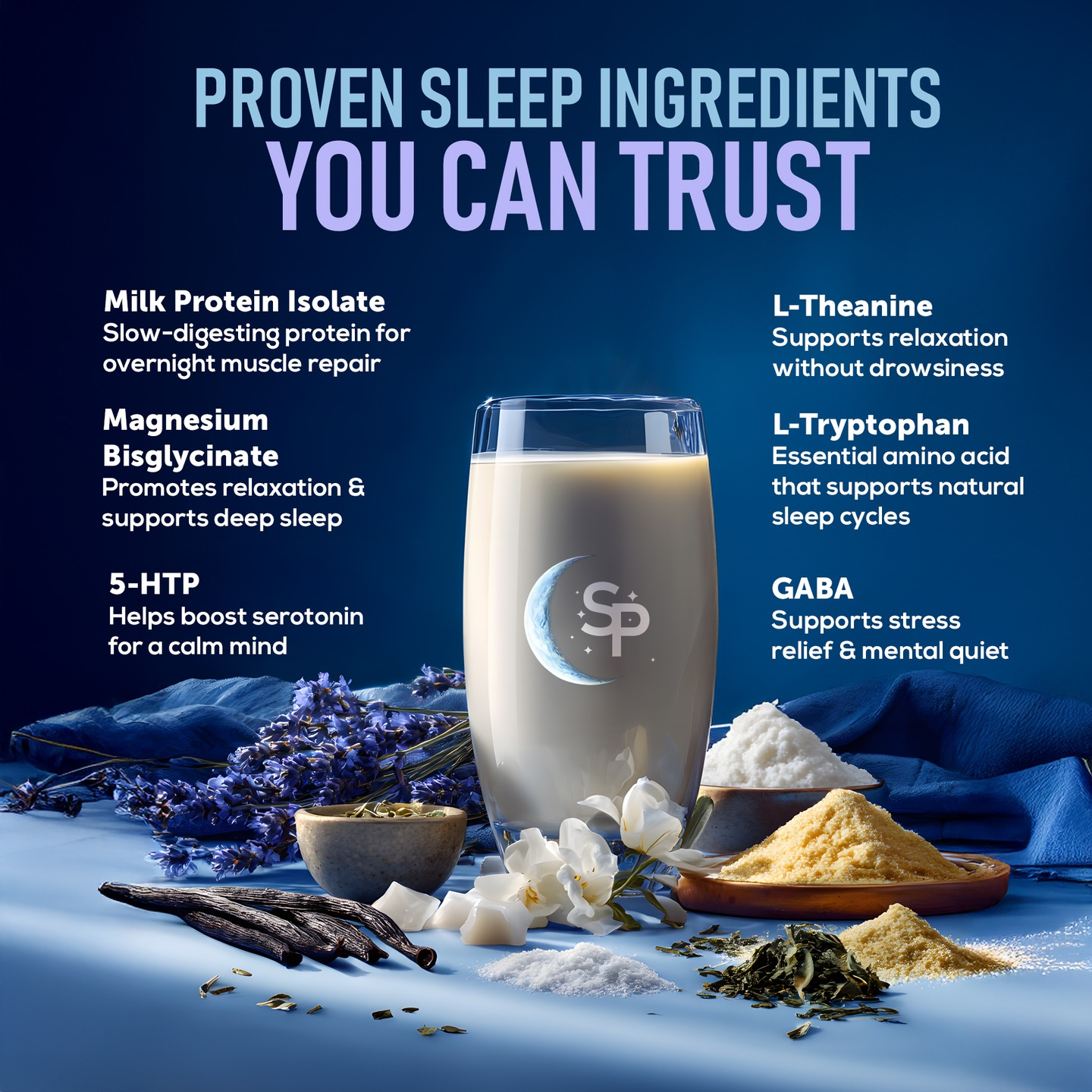
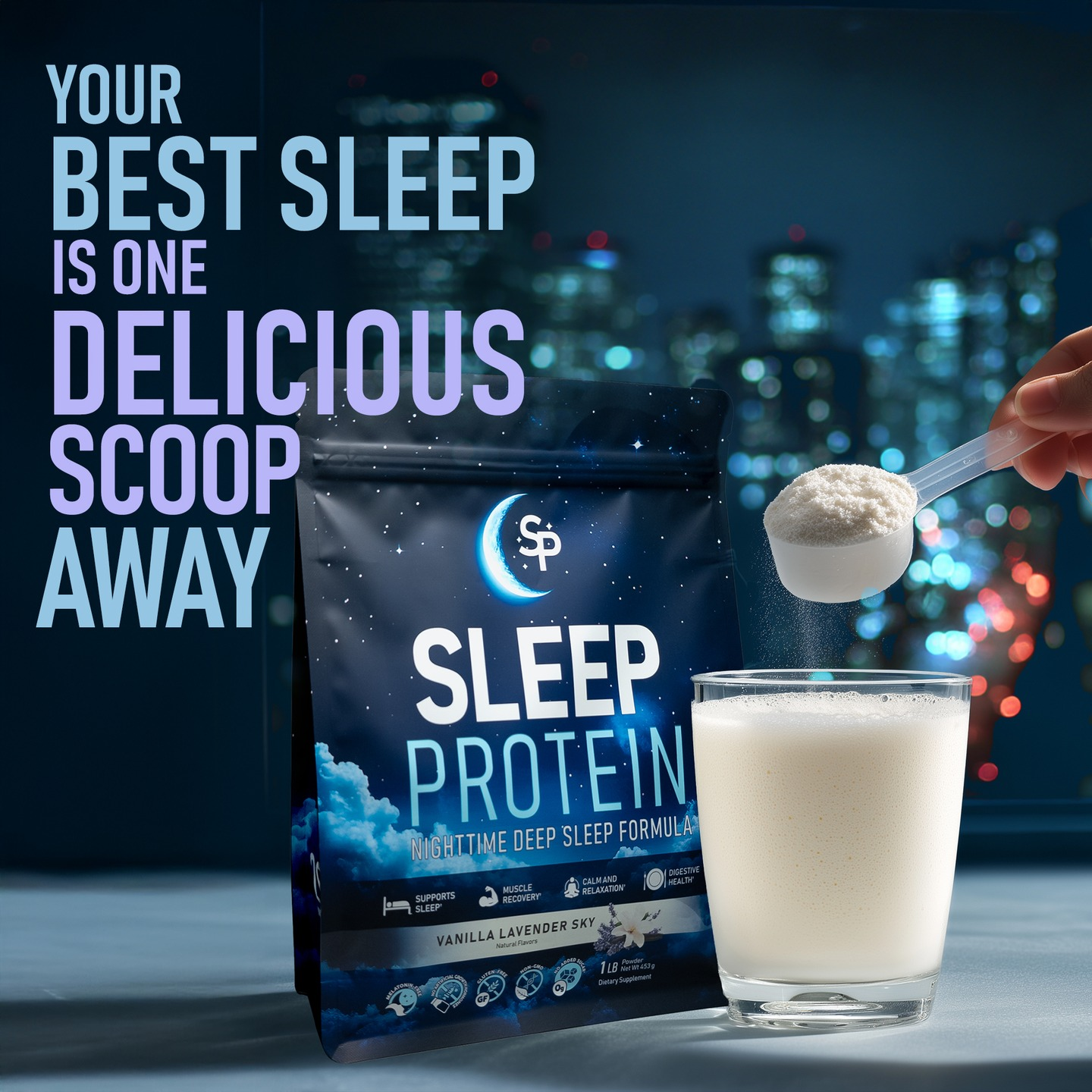
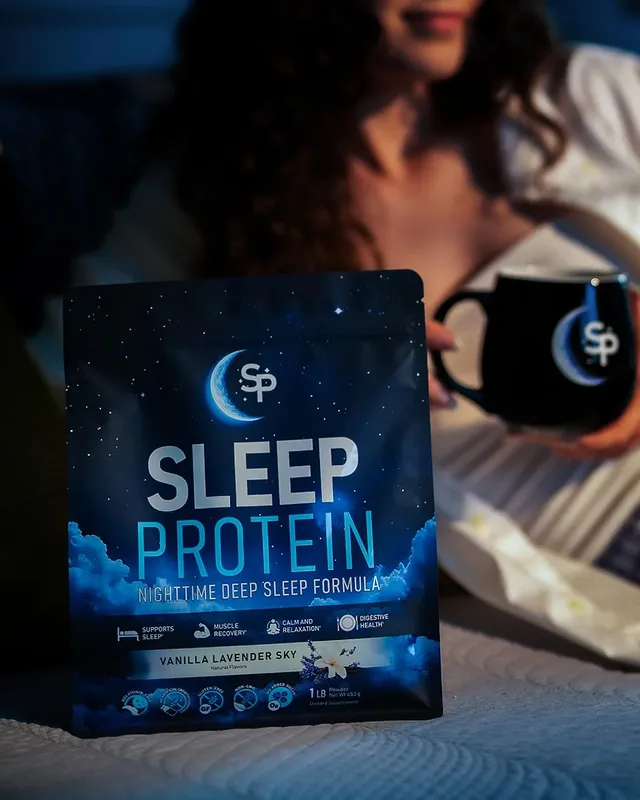
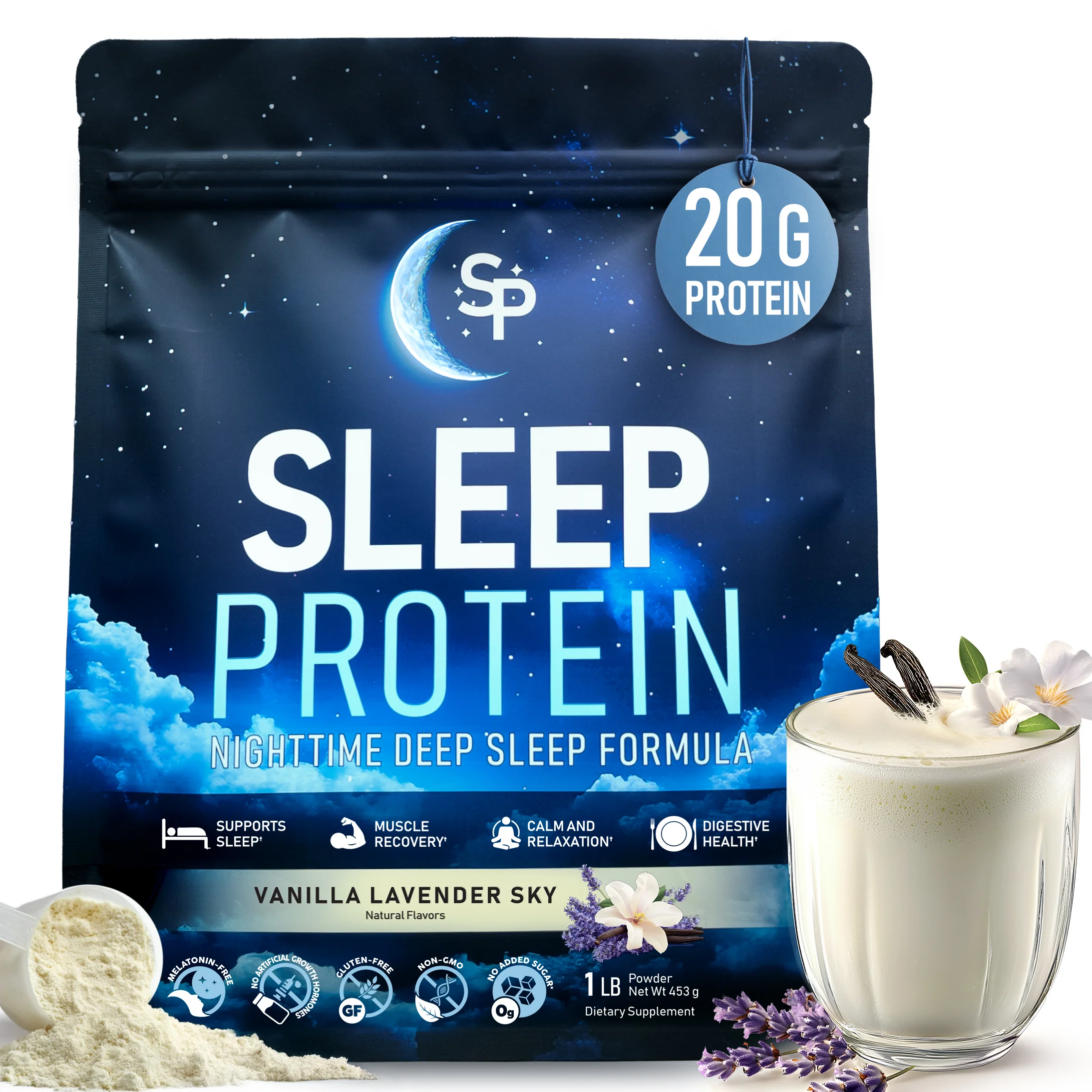
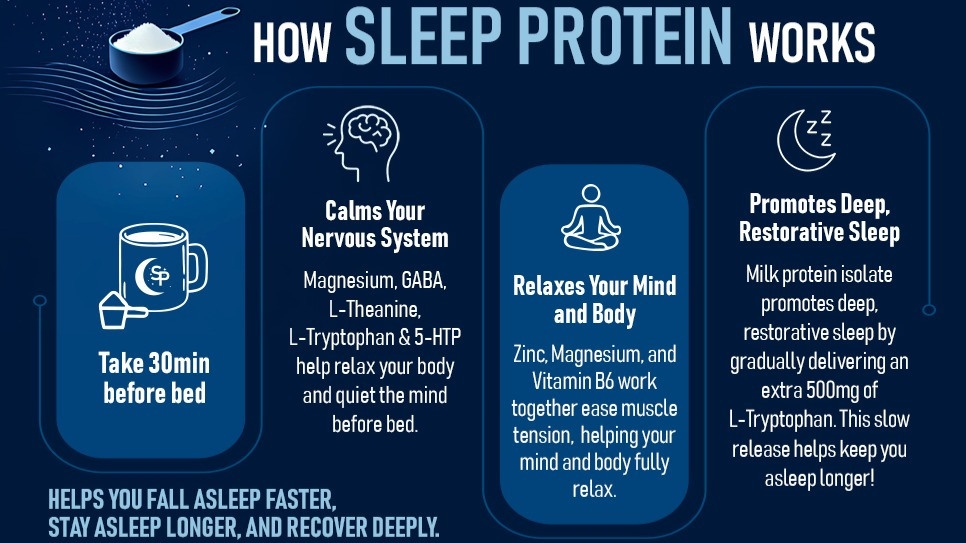
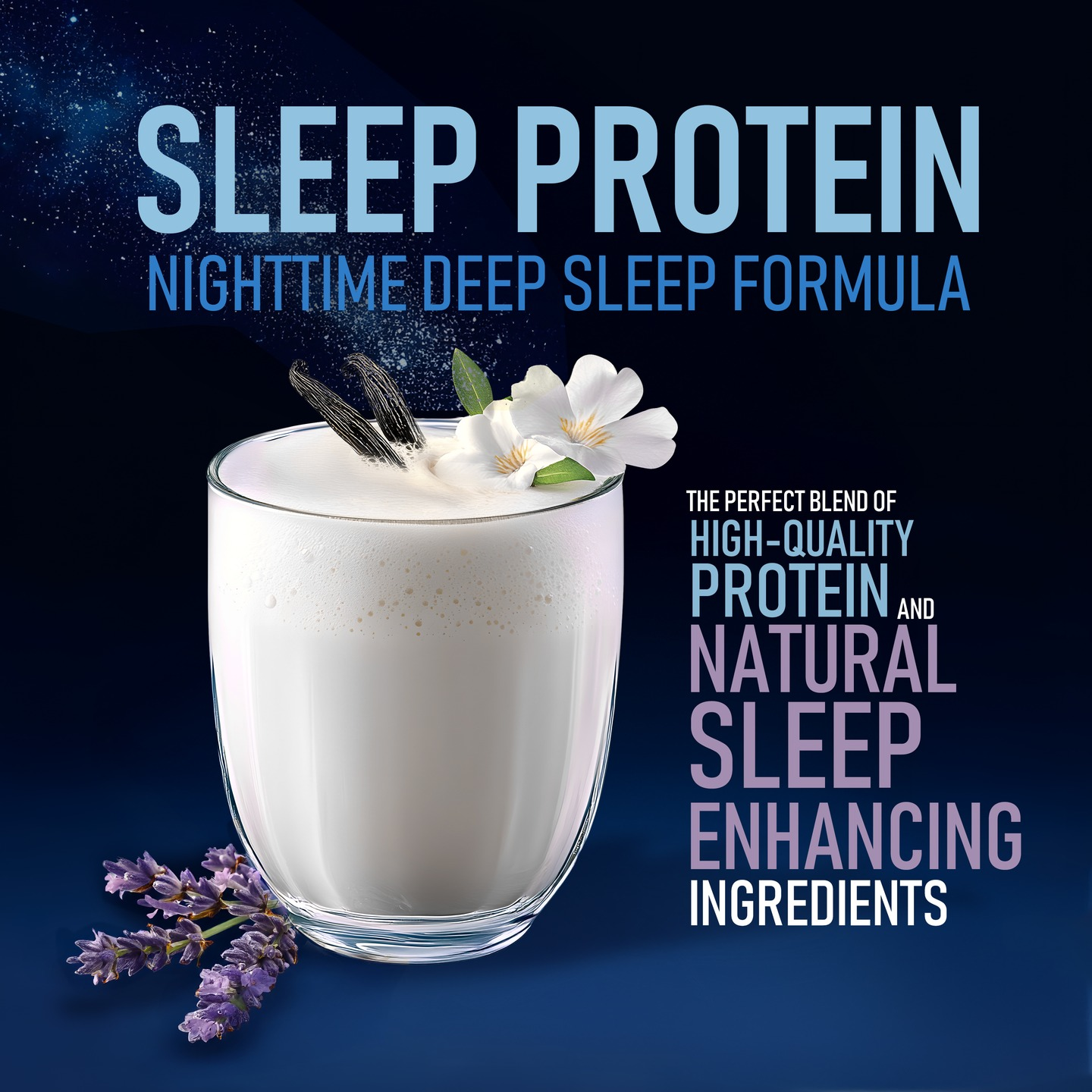


Comments and Discussion (Powered by the PricePlow Forum)